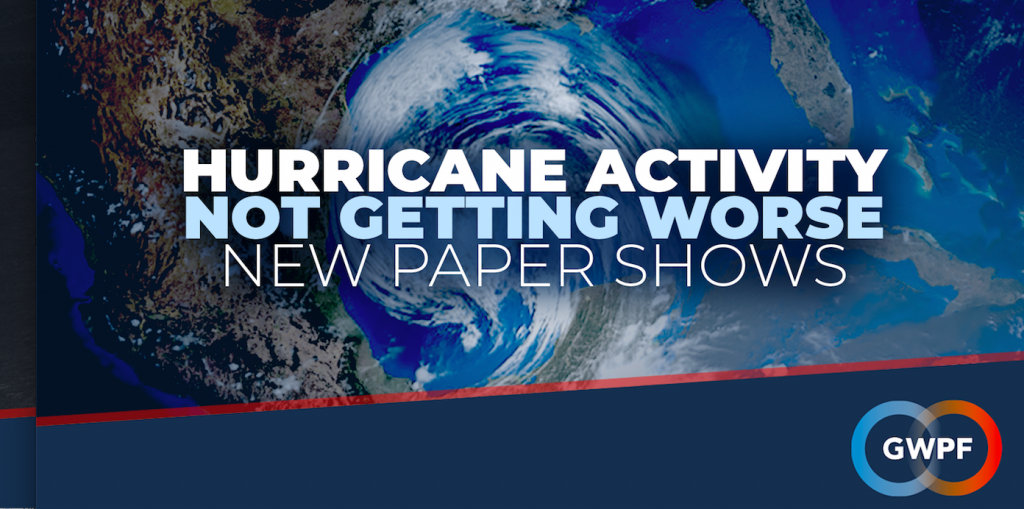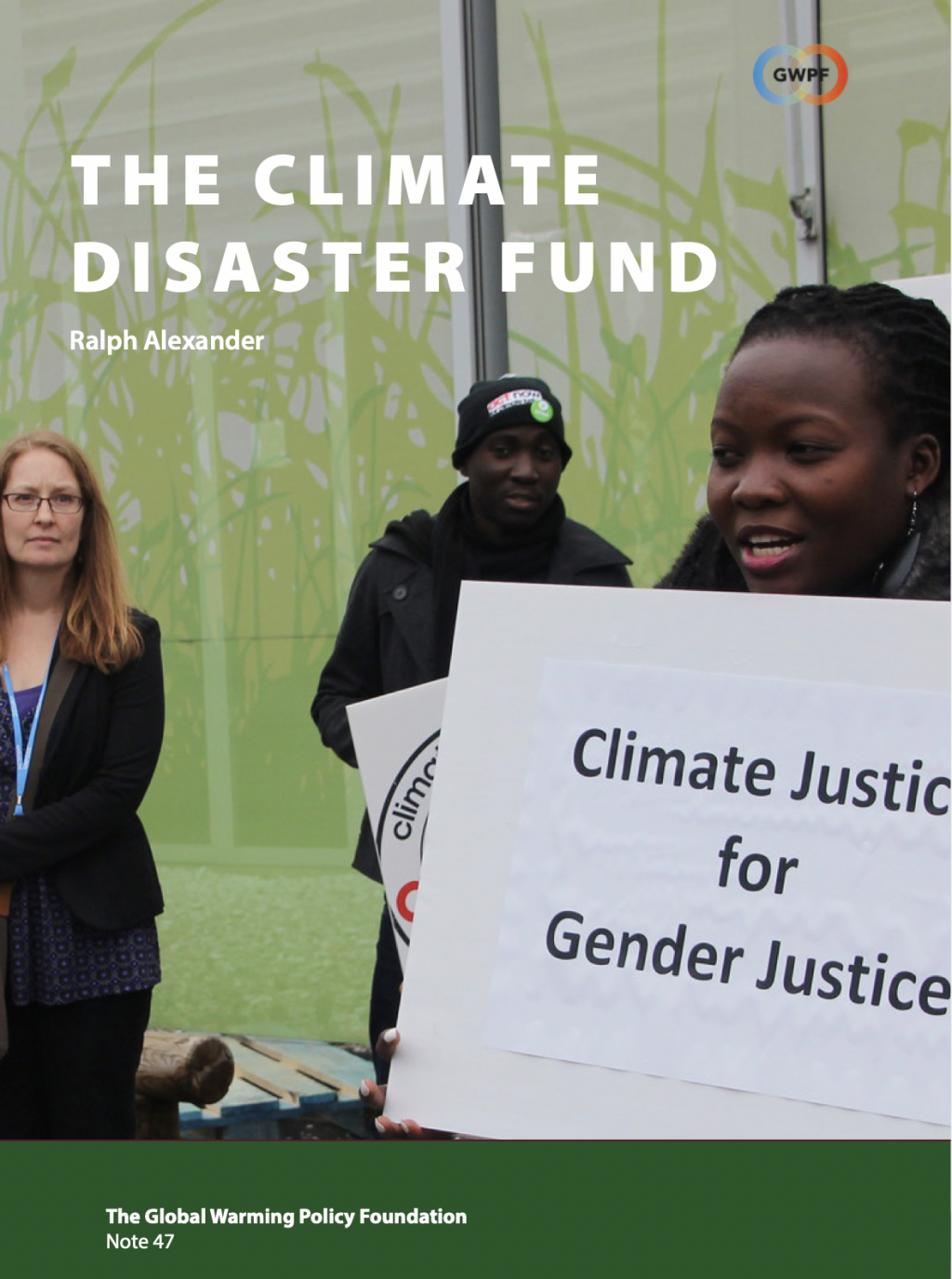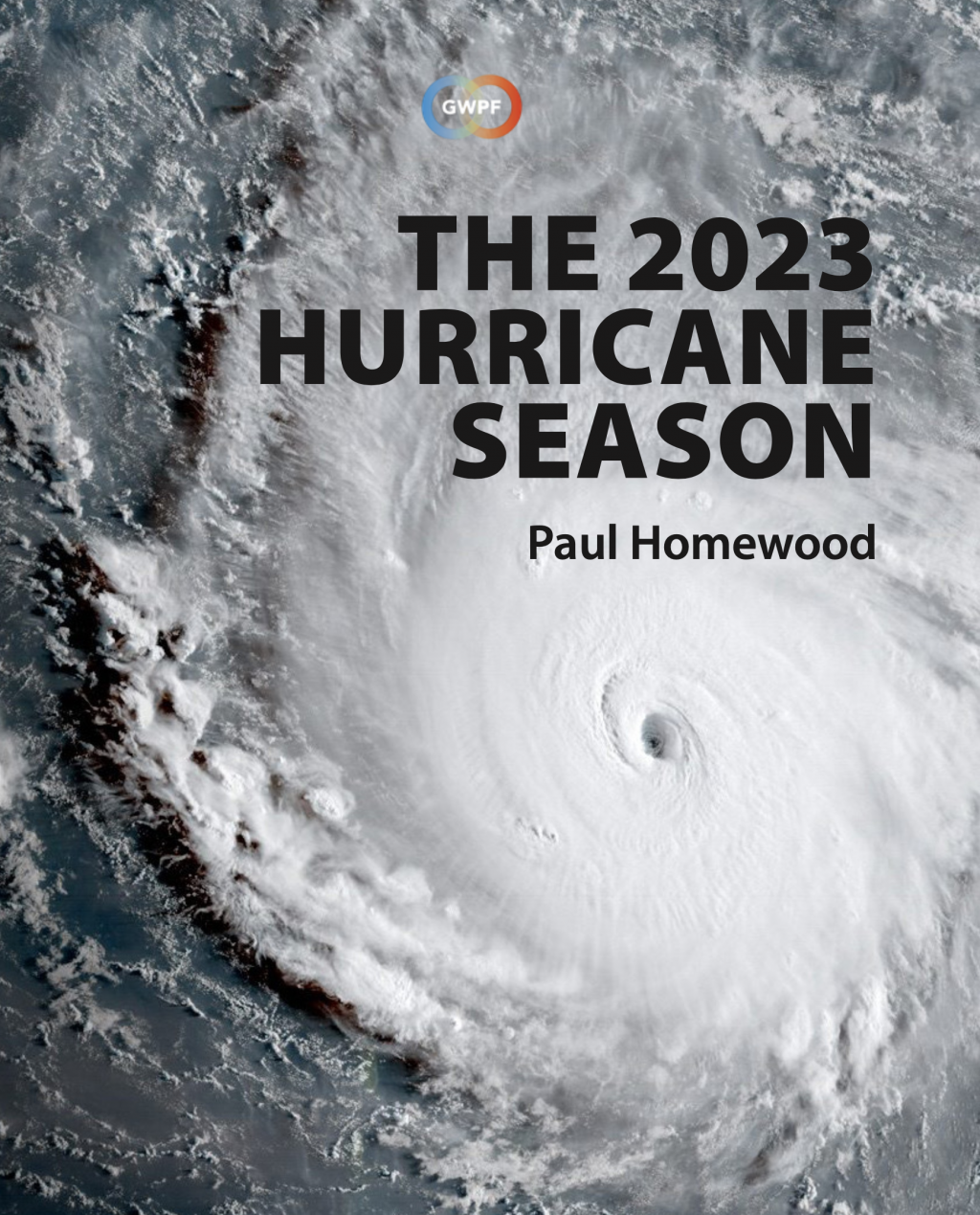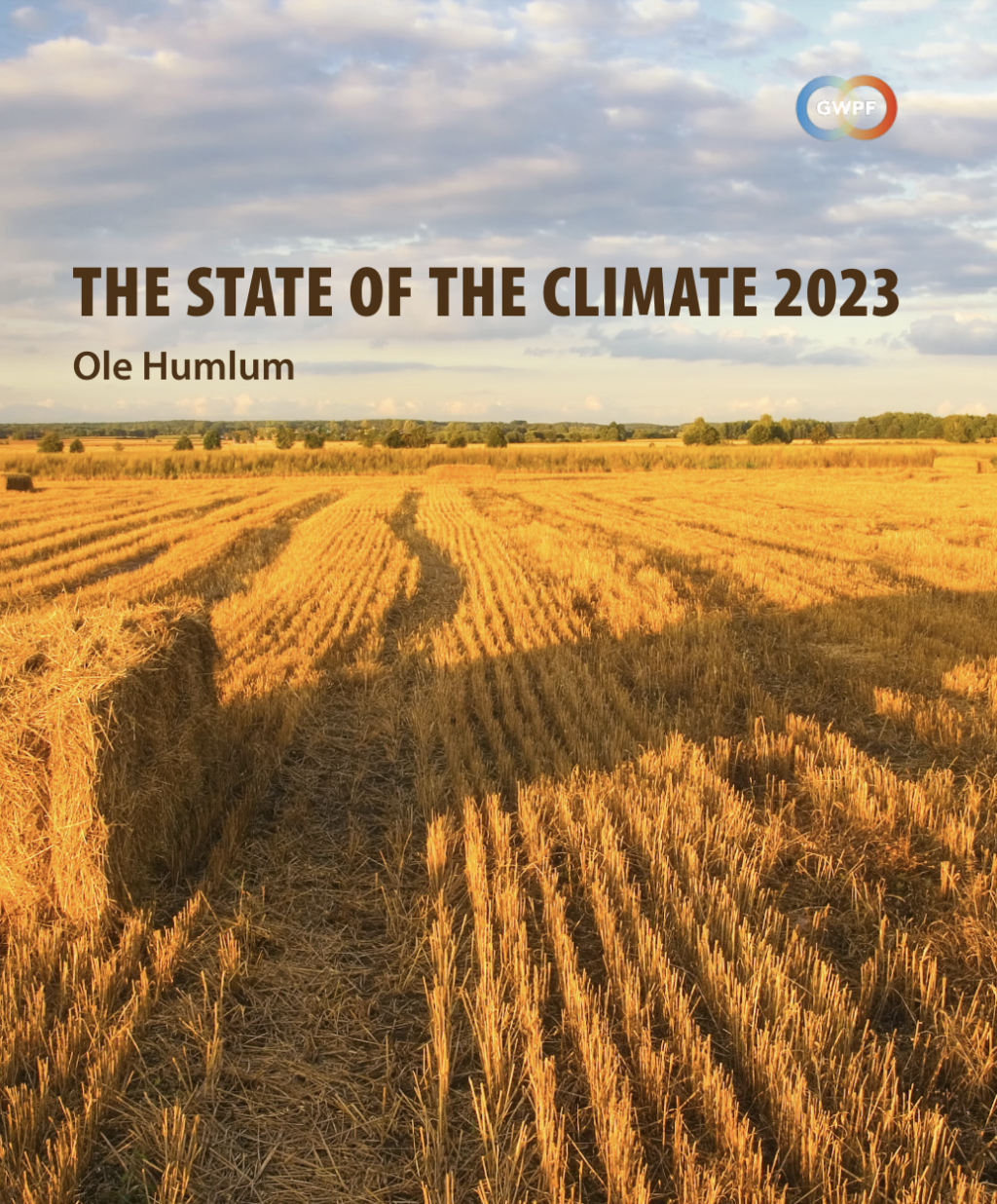Author calls for news media to report empirical facts accurately

London, 24 February – The Global Warming Policy Foundation has today published its periodic review of hurricane activity around the world. The author, climate writer Paul Homewood, says that official data is absolutely clear: they are not getting worse. Indeed, there is some evidence that they are less active in recent years.
Homewood says:
“2021 and 2022 recorded the lowest number of both hurricanes and major hurricanes globally for any two year period since 1980, and this comes against long-term hurricane activity trends that are essentially flat.”
And Homewood calls on journalists to start reporting these undisputed facts to the public:
“While scientists are quite clear that we are not seeing a dramatic increase in hurricanes, or even any increase at all, the public have been conned into thinking that tropical storms are getting worse. It’s high time the mainstream media came clean and told people what is really going on.”
The 2022 Hurricane Season
Executive summary
It is widely believed that hurricanes are getting worse as a consequence of climate change. This belief is fuelled by the media and some politicians, particularly when a bad storm occurs. This belief is reinforced because the damage caused by hurricanes is much greater nowadays, thanks to increasing populations in vulnerable coastal areas and greater wealth more generally.
But is this belief correct, or is it a misconception? This study has carefully analysed official data and assessments by hurricane scientists, and finds:
• 2021 and 2022 recorded the lowest number of both hurricanes and major hurricanes globally for any two year period since 1980.
• The apparent long-term increase in the number of hurricanes since the 19th century has been due to changes in observational practices over the years, rather than a real increase.
• Data show no long-term trends in US landfalling hurricanes since the mid-19th century, when systematic records began, either in terms of frequency or intensity.
• Similarly, after allowing for the fact that many hurricanes were not spotted prior to the satellite era, there are no such trends in Atlantic hurricanes either.
• Globally there are also no trends in hurricanes since reliable records began in the 1970s.
• Evidence is also presented that wind speeds of the most powerful hurricanes may now be overestimated in comparison to pre-satellite era ones, because of changing methods of measurement.
• The increase in Atlantic hurricanes in the last fifty years is not part of a long-term trend, but is simply a recovery from a deep minimum in hurricane activity in the 1970s, associated with the Atlantic Multidecadal Oscillation.
These findings are in line with those of hurricane scientists generally, as well as official bodies such as NOAA and the IPCC.


